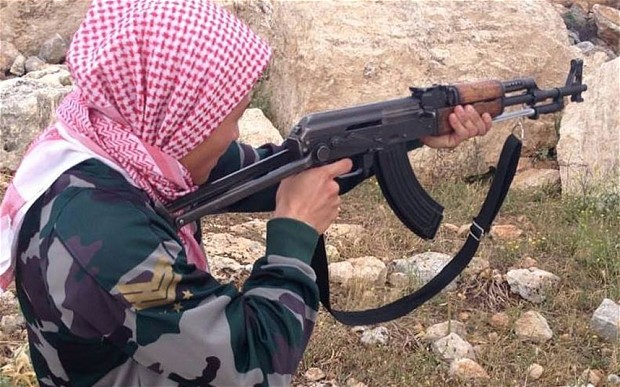 Kalashnikov rifles are often featured in extremist videos
Kalashnikov rifles are often featured in extremist videos
Belatedly perhaps, the public is being alerted to the scale of the problem facing this country from hundreds of British jihadists returning from a brutal sectarian conflict in Syria and now Iraq.
While many may settle back into a normal life here, the police and the Security Service are bracing themselves for the likelihood that a small, violent minority will become involved in domestic terrorism.
Richard Barrett, who spent years directing counter terrorism, first at MI6, then at the UN, says the authorities here will not be able to keep on top of the problem.
Richard Barrett:
Clearly they'll have to prioritise and they'll have to choose those that they think are likely to pose the greatest risk. Beyond that I think they'll have to rely very much on members of the community and other people expressing their concern and worry about the behaviour of perhaps their returned friend or family member.
Those young British jihadists who have gone out to fight in Syria have often left without telling their parents. Radicalised and indoctrinated by what they see on Internet forums, they sometimes disappear only to re-emerge months later in anextremist video, cradling a Kalashnikov in front of a black flag and urging others to join them.
The young men from Cardiff who recently appeared in a video from Syria are just such an example.
SHOW ALL | HIDE ALL
later than expected
violence which happens as a result of disagreement between different religious or cultural groups
preparing themselves to face a difficult task
deal with the most important thing first
depend on, trust
formed a belief that extreme social and/or political change is necessary
taught to believe something so strongly that no other viewpoint is acceptable
(here) a video in which someone expresses political and/or religious views that other people consider to be outside the acceptable range of viewpoints
holding in a protective way
encouraging